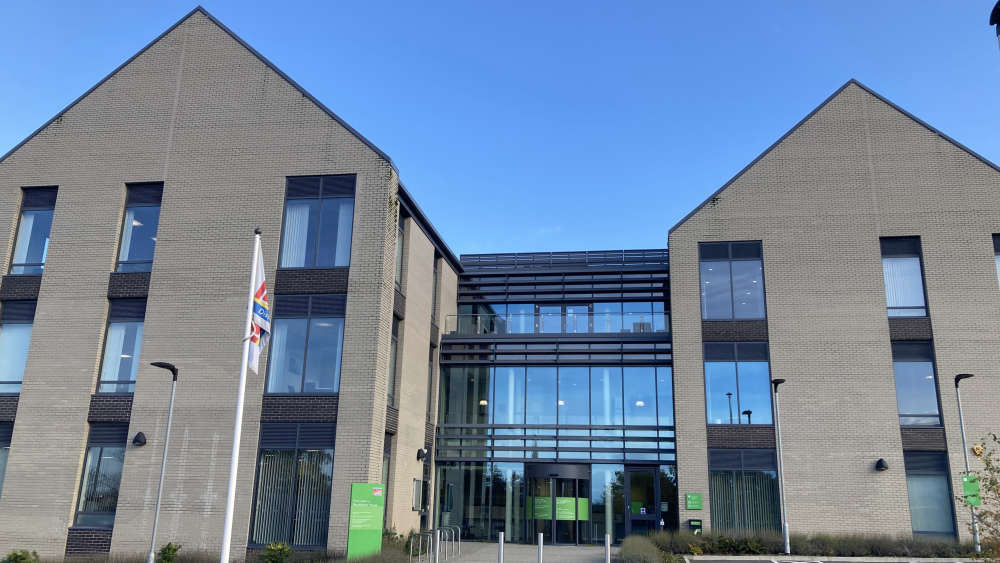
Its leader and chief executive will write to the government
Anger about the government’s winter fuel allowance cuts has prompted East Devon to lobby ministers to rethink the policy urgently.
A motion by Cllr Mike Goodman (Conservative, Sidmouth Sidford) asks East Devon District Council to write to chancellor Rachel Reeves asking her to pause plans and introduce a new threshold to determine eligibility.
Since the last Labour government, pensioners have received cash above the state pension to help with the cost of winter heating, but now only pensioners who receive pension credit or certain other means-tested benefits qualify.
People in East Devon could be particularly effected, given it has more than 45,000 pensioners, with a full council meeting being told this is the fifth highest of all England’s 322 councils.
Around 30 per cent of the district’s residents are retired, and in some areas, such as Sidmouth, around half of residents are retirees.
Councillors voted in favour of the motion, which means that East Devon’s chief executive, Tracy Hendren, and leader Cllr Paul Arnott (Liberal Democrat, Coly Valley), will write to the chancellor in a bid to prompt a change of course.
“We are told that it is necessary for pensioners to make up the fictitious black hole [in government finances] of £22 billion, but we should not be throwing our pensioners in that hole to fill it,” Cllr Goodman said.
“We are seeing a Labour government taking money from pensioners after a Labour government introduced the Winter Fuel Allowance in 1997.
“When it was introduced, Labour said it was simply not prepared to let another winter go by when pensioners were fearful of turning on their heating, even on the coldest winter days.
“But now I assume the Labour government is prepared for pensioners to fear being able to heat their homes.”
While there was unanimous support for the motion, some councillors criticised Cllr Goodman and Cllr Colin Brown (Conservative, Dunkeswell and Otterhead), who seconded the motion, for “politicising” the issue.
Cllr Paul Hayward, (Independent, Axminster) said it was “unfortunate this has been politicised by the proposer and seconder”.
“If you took the word ‘Labour’ out of the motion it would still apply,” he said.
“They could have written ‘government’ but both speakers said ‘Labour’.
“Also, I find it slightly disingenuous that since 2019 when I was elected, we have never had a motion about the £20 universal credit cut affecting millions of disadvantaged people. We’ve never had a motion citing that the UK state pension is among the lowest in Europe, nor a motion representing women born in the 1950s – known as the Waspi women – who have had tens of thousands of pounds stolen from [their pensions].”
Cllr Hayward added that the timing of the motion from the Conservative members was notable given the county council elections are due in May. The Conservatives control Devon County Council.
Cllr Todd Olive (Liberal Democrat, Rockbeare and Whimple) was “slightly irritated” by how much the issue had been politicised, while Cllr John Heath (Independent, Beer and Branscombe) felt the issue “transcended politics”.
Cllr Peter Faithfull (Independent, Ottery St Mary) agreed that people with “generous pension schemes” do not need to be paid winter fuel allowances, but argued the formula the government had decided upon is “clearly wrong”.
Cllr Arnott welcomed the motion, and said he thought it would be sensible to also highlight to the chancellor part of the debate highlighting vast numbers of people who will fall just outside the eligibility criteria for the allowance, but whose low incomes or other circumstances, such as disabilities, also means they are vulnerable over the winter.
“There are residents who have less capital or are fractionally over the pension credit threshold, and they are going to be left particularly financially vulnerable,” he said.
Cllr Arnott stated that staff had already started work on a campaign to encourage pensioners to take up extra financial help, and that this had been extended in light of the winter fuel allowance announcement.
“It’s nationally recognised that this cohort are less likely to access benefits they are entitles to receive and it’s thought this can be for a combination of reasons, such as pride, worrying about what other people think, a lack of knowledge about benefits or the qualifying criteria or knowing how to claim,” he said.
 Chief constable won't be prosecuted
Chief constable won't be prosecuted
 Pop-up market proposal for Exeter city centre
Pop-up market proposal for Exeter city centre
 'Bad deal' blast over Churston solar farm
'Bad deal' blast over Churston solar farm
 Bovey Tracey holiday homes plan rejected
Bovey Tracey holiday homes plan rejected
 Broadside for 'incongruous' Kingsbridge waterside home
Broadside for 'incongruous' Kingsbridge waterside home
